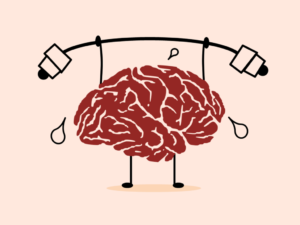Brain Training Apps
Brain Training Apps: Unlocking Your Mind’s Potential
Table of Contents
- Introduction
- What Are Brain Training Apps?
- Types of Brain Training Apps
- How Do They Work?
- The Benefits of Brain Training
- Are They Effective?
- Safety Concerns
- Offline Usability
- Final Thoughts
Introduction
Have you ever wished you could boost your memory, focus better, or think faster? Perhaps you’ve found yourself forgetting names, struggling to concentrate, or simply feeling mentally sluggish. In a world that demands more from us every day, keeping your brain in top shape has never been more essential. Enter the world of brain training apps—your personal gym for the mind, designed to improve various aspects of cognitive function. In this comprehensive guide, we’ll take you through the ins and outs of these intriguing applications. From the types available and their underlying mechanics to their benefits and potential downsides, we’ve got you covered. By the end, you’ll not only know whether these apps are effective but also which type might be the best fit for you. So, let’s embark on a journey to unlock the untapped potential of your mind.

Mental Excercise
What Are Brain Training Apps?
Imagine if your brain were like a muscle, one that could be flexed, trained, and strengthened with regular exercise. Well, it turns out that this isn’t too far from reality. Brain training apps serve as the dumbbells and treadmills for your mind, providing a range of activities designed to challenge and improve various cognitive skills. But what exactly are these mysterious digital trainers?
At their core, brain training apps are specialized software designed for smartphones, tablets, and computers. They contain a series of games, puzzles, and exercises aimed at stimulating different areas of your brain. Unlike traditional games, which are created primarily for entertainment, these apps are developed with the input of neuroscientists, psychologists, and educational experts. The goal? To help you sharpen skills like memory, attention, problem-solving, and even emotional regulation.
A Brief History
It’s fascinating to see how the concept of brain training has evolved over the years. Earlier, people resorted to crossword puzzles, Sudoku, and chess to keep their minds agile. With the advent of technology, these classical methods have been given a digital makeover, making it easier than ever to engage in cognitive workouts at your convenience. Now, you can train your brain while waiting in line at the grocery store or during your daily commute. It’s mental fitness, pocket-sized!
Not Just for the Elderly
While brain training apps are often marketed towards older adults concerned about cognitive decline, they are not the sole beneficiaries. Students can use these apps to improve focus and academic performance. Professionals may find them useful for enhancing multitasking abilities or decision-making skills. Even athletes can benefit from the heightened reaction times and improved concentration that regular brain training can provide. In short, these apps offer something for everyone, regardless of age or profession.
The Buzz Around Brain Training
There’s no denying that brain training apps have caught the public’s attention. From being featured on popular talk shows to gaining celebrity endorsements, they’ve become a cultural phenomenon. But as with anything that gains rapid popularity, it’s crucial to separate the hype from the facts, which is precisely what we’ll do in this article.
By the time you finish reading, you’ll have a nuanced understanding of what brain training apps are, the science behind them, and whether they’re the right fit for you. So, let’s dive deeper into this captivating world and discover its many layers.
Types of Brain Training Apps
So, you’re intrigued by the idea of brain training and can’t wait to dive in. But wait—did you know that not all brain training apps are created equal? In fact, these apps focus on a variety of cognitive functions, each honing a specific skill set. Here, we’ll explore the most common types of brain training apps to help you figure out which one aligns with your personal goals.
Memory Training
What’s It About?
Memory training apps primarily focus on enhancing your ability to remember things—names, faces, numbers, and even complex sequences. These apps often employ techniques like spaced repetition and active recall to help you build a stronger memory.
Who Can Benefit?
Students studying for exams, professionals who need to remember client details, or anyone who’s tired of forgetting where they left their keys.
Cognitive Training
What’s It About?
These apps aim to improve your overall cognitive ability, including aspects like logical reasoning, problem-solving, and abstract thinking. They feature a wide variety of tasks, from pattern recognition games to complex mathematical challenges.
Who Can Benefit?
Ideal for people in professions that require strategic thinking or problem-solving skills, such as engineers, doctors, and even artists who want to think more creatively.
Problem-Solving Games
What’s It About?
As the name suggests, these apps are designed to put your problem-solving skills to the test. They often feature real-world scenarios where you have to make quick decisions based on limited information.
Who Can Benefit?
Anyone who wants to improve their decision-making skills or who enjoys challenges that require quick and efficient problem-solving.
Attention and Focus
What’s It About?
These apps aim to improve your concentration levels and your ability to focus on tasks for extended periods. They often use exercises that require sustained attention and quick reflexes.
Who Can Benefit?
Students who need to concentrate better in class, professionals who have to juggle multiple tasks, and even athletes who need to maintain focus during competitions.
Choosing the right type of brain training app can be as crucial as selecting the right kind of physical exercise for your body. Whether you’re looking to boost your memory, think more critically, solve problems efficiently, or focus better, there’s likely an app designed just for you. In the sections to come, we’ll delve into the mechanics of how these apps work, and whether they live up to the hype.
How Do They Work?
You’ve probably heard the saying, “It’s not about working hard; it’s about working smart.” The same principle applies to brain training apps. These apps don’t just throw random puzzles and exercises your way; they are intricately designed with scientific and psychological principles in mind. But what exactly powers these digital mental gyms? Let’s break down the key elements.
Adaptive Algorithms
The Personal Trainer for Your Brain
Just like a personal trainer adjusts your workout routine based on your performance and needs, adaptive algorithms within brain training apps modify the difficulty level of exercises in real-time. This ensures that you’re neither bored by tasks that are too easy nor frustrated by those that are too challenging.
Data-Driven Decisions
These algorithms collect data on how well you’re doing in each exercise and use this information to present future challenges that are tailored to your abilities. The result? A customized mental workout plan that evolves with you.
The Science of Gamification
The Fun Factor
Ever wondered why it’s so easy to get hooked on a video game but so hard to stick to a workout routine? The answer lies in the psychology of gamification. Brain training apps often incorporate elements like points, levels, and badges to make the learning process more engaging.
Why It Works
Gamification leverages our natural desires for socializing, competition, and achievement. By turning cognitive exercises into games, these apps tap into these instincts, making it easier for you to stay committed to your mental fitness journey.

Gamification keeps your attention with rewards
Understanding the inner workings of brain training apps can deepen your appreciation for them and help you use them more effectively. These aren’t just simple games designed to pass the time; they are sophisticated tools engineered to adapt to your unique cognitive needs and preferences. In the next section, we’ll explore the various benefits you can reap from using these apps, so you can decide if they’re worth incorporating into your daily routine.
The Benefits of Brain Training
You’ve heard the claims—sharper memory, quicker reflexes, enhanced focus. But what can you really expect to gain from spending time on brain training apps? The benefits extend far beyond mere party tricks or impressing your friends with your mental acumen. Let’s take a closer look at what you stand to gain from this modern approach to cognitive enhancement.
Boosted Memory
Short-Term Gains
Ever walked into a room and forgotten why you’re there? Brain training apps can help you improve short-term memory, aiding you in retaining and recalling information more effectively.
Long-Term Benefits
Regular use of memory-enhancing exercises can even contribute to better long-term memory. This is particularly beneficial for students, professionals, and anyone looking to keep their mind sharp as they age.
Enhanced Focus and Attention
Cut Through the Noise
In our information-overloaded world, maintaining focus has become increasingly challenging. Brain training apps offer exercises specifically designed to improve your concentration, helping you stay on task.
Stay in the Zone
By regularly engaging in attention-boosting exercises, you can enhance your ability to enter “the zone,” a mental state where you’re fully immersed and focused on your activity.
Improved Problem-Solving Skills
Real-World Applications
Improving your problem-solving skills isn’t just useful for puzzles and games; it has real-world applications. Whether you’re making critical decisions at work or figuring out complex personal matters, a sharpened ability to solve problems can be invaluable.
Emotional Well-being
Stress Management
Some brain training apps also offer exercises aimed at improving emotional regulation. By enhancing your ability to manage stress and recognize emotional triggers, you can achieve a more balanced mental state.
Boosted Self-Esteem
As you improve your cognitive abilities, you’re also likely to experience a boost in self-esteem. There’s a psychological uplift in knowing that you’re actively working to better yourself.
The benefits of brain training are both immediate and long-lasting, impacting various facets of your life. Whether you’re a student looking to ace your exams, a professional aiming for that promotion, or simply someone who wants to keep their mind in peak condition, there’s a lot to gain from these digital brain gyms.
Are They Effective?
The million-dollar question: do brain training apps really work? You’ve read the claims, seen the benefits, and are likely intrigued by the potential these apps offer. However, it’s natural to wonder if they genuinely deliver on their promises. To get to the heart of the matter, let’s examine both the scientific evidence and real-world testimonials.
Scientific Studies
The Good News
There’s a growing body of research indicating that specific types of cognitive training can indeed lead to measurable improvements in mental functions. Studies have shown gains in areas such as working memory, attention, and problem-solving skills.
The Caveats
However, it’s essential to note that not all brain training apps are backed by robust scientific evidence. Some apps make exaggerated claims that aren’t supported by credible research. Also, while some skills may improve, it’s not yet clear how well these gains translate to real-world tasks.
User Testimonials
Real People, Real Results
If you browse through the reviews of popular brain training apps, you’ll find a plethora of users who swear by their effectiveness. From improved performance at work to enhanced daily functioning, people from all walks of life claim to have benefited.
Take It With a Grain of Salt
While these testimonials can be encouraging, it’s crucial to approach them with a discerning eye. Personal experiences can be subjective and influenced by various factors, including the placebo effect.
So, are brain training apps effective? The answer is both yes and no. While there’s promising evidence to support the efficacy of specific types of cognitive training, the effectiveness can vary from person to person and app to app. Your best bet? Choose an app that’s backed by solid research and aligns with your personal cognitive goals.
Safety Concerns
When it comes to brain training apps, the first thing that comes to mind is usually their potential for cognitive enhancement. But what about safety? Are there any risks or drawbacks that you should be aware of before diving into your mental workout routine? Let’s explore some safety concerns that may not be immediately obvious but are worth considering.
Data Privacy
Personal Information
Most brain training apps require users to create an account, which often involves sharing personal information. While this is standard for many types of apps, it’s essential to be aware of how your data is being used and stored.
Cognitive Data
Beyond just your email or social media account, these apps collect data on your cognitive performance. The question is, what do they do with this sensitive information? Make sure to read the privacy policy and terms of service to understand how your data is handled.
Screen Time
Balancing Act
One of the criticisms against brain training apps is that they contribute to increased screen time. While they may offer cognitive benefits, excessive screen time has its own set of health concerns, including eye strain and disrupted sleep.
Moderation is Key
As with anything in life, moderation is crucial. Try to balance your cognitive training with other forms of mental and physical exercise that don’t involve staring at a screen.

Use in app controls to set time limits
Mental Fatigue
Too Much of a Good Thing
While challenging your brain can be beneficial, excessive training can lead to mental fatigue. Just like your muscles need rest after a workout, your brain also needs time to recover.
Know Your Limits
Pay attention to how you feel during and after using the app. If you start to feel mentally exhausted or stressed, it may be a sign that you need to take a break.
While brain training apps offer numerous benefits, it’s essential to approach them with a balanced perspective, considering potential safety concerns. Being informed about these issues allows you to use the apps more responsibly and get the most out of your cognitive training journey.
Offline Usability
In our always-connected digital world, it’s easy to forget that there are times when we might not have reliable internet access. Whether you’re on a long-haul flight, camping in the wilderness, or simply facing an unexpected outage, offline usability can be a crucial factor in choosing a brain training app. So, can these apps still flex your mental muscles without a Wi-Fi connection? Let’s find out.

Can the app work when offline?
Fully Offline Apps
Train Anytime, Anywhere
Some brain training apps are designed to be entirely functional without an internet connection. Once you download the app and its content, you’re good to go. These apps are ideal for those who often find themselves in areas with poor or no internet connectivity.
Limited Updates
While the offline nature of these apps offers tremendous convenience, they may not update your performance metrics in real-time or offer the latest exercises until you reconnect to the internet.
Partial Offline Usability
Core Features Available
Several apps provide limited offline usability. While you may not have access to all the features, essential training exercises are usually available. This ensures you can continue your cognitive workout even when you’re off the grid.
Sync When You Can
These apps will typically store your performance data locally and sync it to your account once you’re back online. This allows you to maintain a continuous training history.
No Offline Usability
Always Connected
Some brain training apps require a constant internet connection to function. These apps often rely on cloud-based algorithms to adapt your training regimen in real-time.
Know Before You Go
If you’re considering one of these apps, be mindful of your typical usage scenarios. If you know you’ll frequently be in places without reliable internet, such an app may not be the best choice for you.
The offline usability of a brain training app can significantly impact its convenience and your commitment to regular training. Knowing what to expect can help you make a more informed choice, ensuring that your cognitive training fits seamlessly into your lifestyle.
Final Thoughts
We’ve taken a deep dive into the world of brain training apps, covering everything from their types and underlying mechanics to their potential benefits and concerns. It’s clear that these digital tools offer a fascinating and convenient way to engage our minds, challenging us to push our cognitive abilities to new heights.
Worth the Investment?
If you’re looking to sharpen your memory, improve focus, or enhance problem-solving skills, then a well-chosen brain training app could be a valuable addition to your daily routine. However, it’s essential to approach this with a balanced perspective. Not all apps are created equal, and your mileage may vary depending on your individual needs and the effort you put in.
Keep the Bigger Picture in Mind
While brain training apps offer an exciting avenue for cognitive improvement, they’re not a magic bullet. They are most effective when used as part of a broader lifestyle approach that includes physical exercise, a balanced diet, and adequate sleep. After all, a healthy body is the best home for a healthy mind.
Your Brain, Your Rules
At the end of the day, you’re the best judge of what works for you. Whether you’re a student, a professional, or someone simply interested in mental well-being, the key is to find an app—or a combination of apps—that aligns with your personal goals and lifestyle.
Thank you for joining us on this comprehensive exploration of brain training apps. We hope this guide has armed you with the information you need to make an informed decision. Remember, the journey to cognitive enhancement is a marathon, not a sprint. So take your time, do your research, and most importantly, enjoy the process of unlocking your brain’s untapped potential.